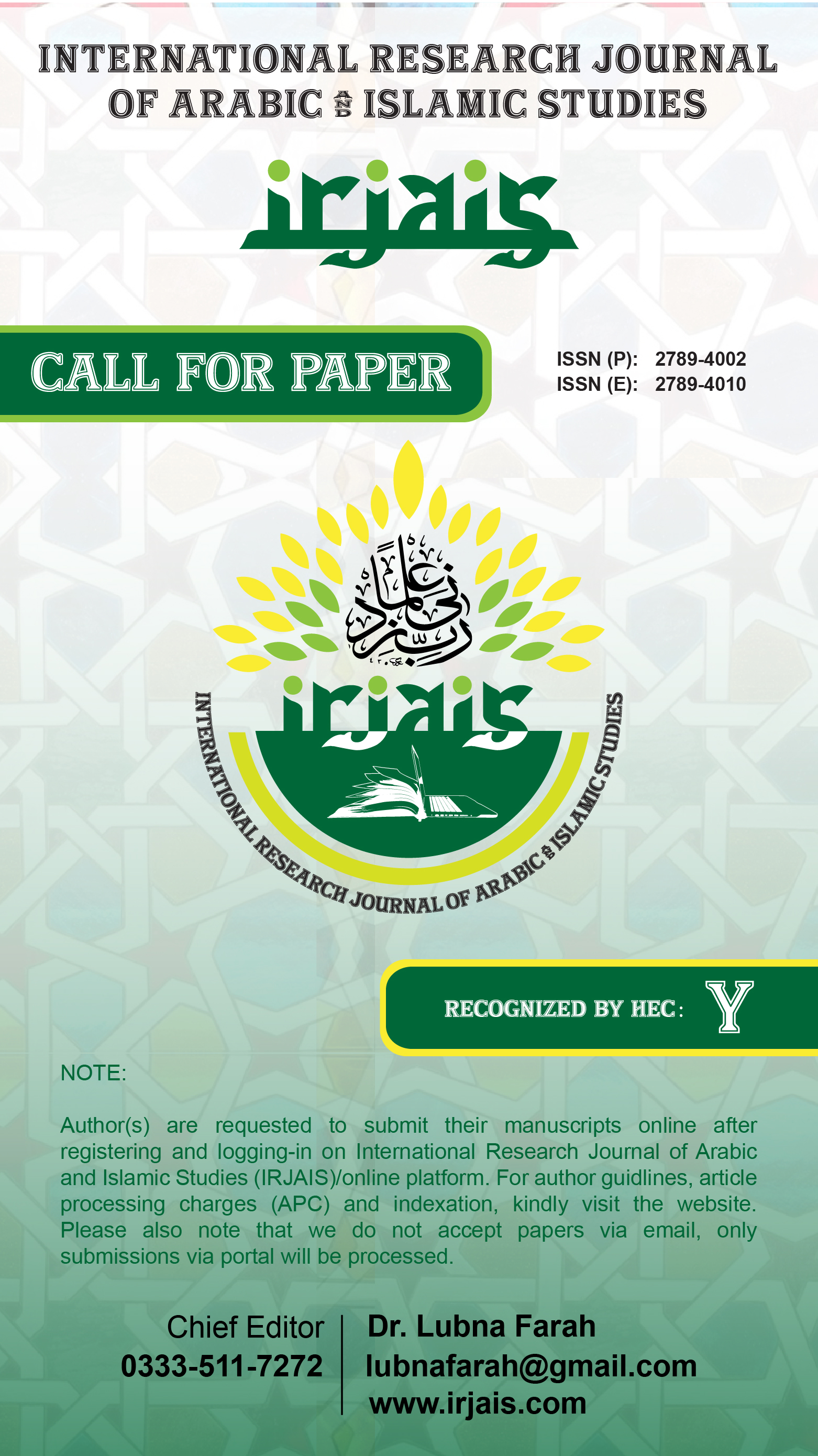اجتہاد: اصول، اسالیب اور جدید مسلم مفکرین کے نظریات کا جائزہ
Ijtihad: An Examination of Principles, Methods, and Modern Muslim Thinkers' Perspectives
Keywords:
Ijtihad, the Quran, Sunnah, Dynamic outlook, Muslim, Mujtahid.Abstract
This paper primarily dealt with the “moving principle of Islam” namely “Ijtihad” and principles and genres thereof. It also endeavoured to investigate the viewpoints of some modern Muslim theorists and scholars like Allama Iqbal, Abdul Karim Soroush, and Muhammad Shahrur. All of the scholars under discussion are of the view that when Islam claims to be the religion for all times to come, so it must have shown requisite dynamism and flexibility in his teachings especially in its Law in order to fulfill the needs of every time and space. As the Holy Quran “embodies a dynamic outlook on life”, so the law of Islam cannot be static nor should it be confined within the bounds of the interpretations made by a particular school of legal thought in the history of Islam because such attitude may lead to immobility which is repugnant to the true spirit of Islam. But rather an individual provided he has the requisite qualifications of a Mujtahid should be allowed to solve the new emerging issues of contemporary world facing the Muslims in accordance with the very spirit of the Quran and Sunnah. Thus, this paper made an effort to analyze such notions as were presented by the Muslim scholars in the past and present times.





